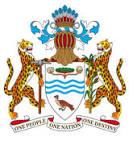Acreage Tax Act (Cap. 81:22).
An Act to provide for the collection of acreage taxes.
Resource information
Resource Language
ISBN / Resource ID
LEX-FAOC004325
License of the resource
Copyright details
© FAO. FAO is committed to making its content freely available and encourages the use, reproduction and dissemination of the text, multimedia and data presented. Except where otherwise indicated, content may be copied, printed and downloaded for private study, research and teaching purposes, and for use in non-commercial products or services, provided that appropriate acknowledgement of FAO as the source and copyright holder is given and that FAO's endorsement of users' views, products or services is not stated or implied in any way.
The Act makes provision for the collection of taxes on acres of land imposed by Parliament. Rates of levy may vary according to the use of (arable) land. The proprietor of any plantation or any land of which any acreage tax is payable, shall provide the Commissioner of Land each year with a return in Form 1 contained in the Schedule. (12 sections and 1 Schedule)



